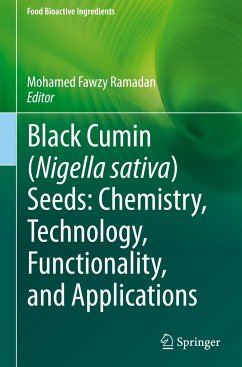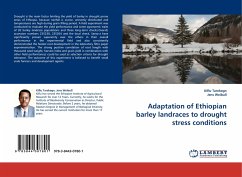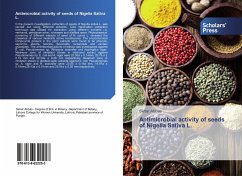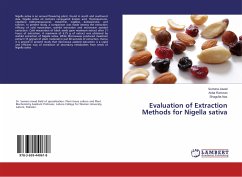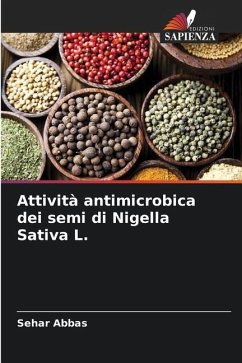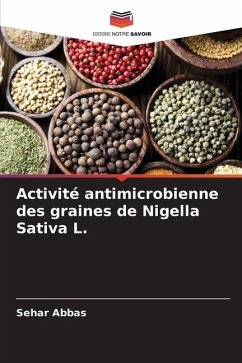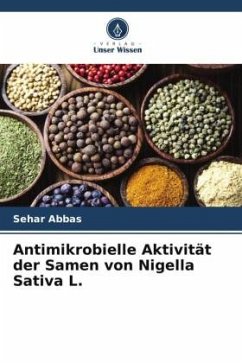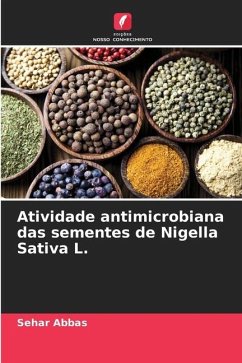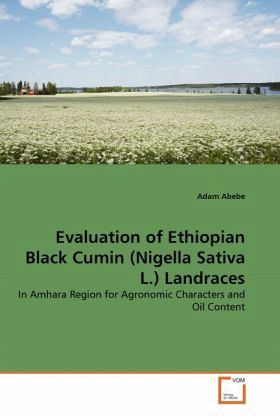
Evaluation of Ethiopian Black Cumin (Nigella Sativa L.) Landraces
In Amhara Region for Agronomic Characters and Oil Content
Versandkostenfrei!
Versandfertig in 6-10 Tagen
32,99 €
inkl. MwSt.

PAYBACK Punkte
16 °P sammeln!
An ever-increasing demand of black cumin oil for medicinal purposes, its potential in crop diversification, income generation both in rural and urban areas and its importance to reduce the risk of crop failure make black cumin as a best alternative crop under smallholders. Despite its importance, so far little attention has been given to improve its production and productivity and hence it remained as a minor or underutilized crop. Underlining multiple benefits of black cumin and to valorizing its extinction from the ecosystem and enrich the limited available information of this crop, assessme...
An ever-increasing demand of black cumin oil for medicinal purposes, its potential in crop diversification, income generation both in rural and urban areas and its importance to reduce the risk of crop failure make black cumin as a best alternative crop under smallholders. Despite its importance, so far little attention has been given to improve its production and productivity and hence it remained as a minor or underutilized crop. Underlining multiple benefits of black cumin and to valorizing its extinction from the ecosystem and enrich the limited available information of this crop, assessment on the extent of genetic variability and oil content (essential and fatty oils) was carried out on Ethiopian black cumin landraces. Therefore, this book is considered as one pace in bringing the agenda of black cumin in to forum. Hence, the book provides pertinent information to concerned agricultural academic staffs; particularly, agromists and breeders and those who involved in the production of black cumin.



